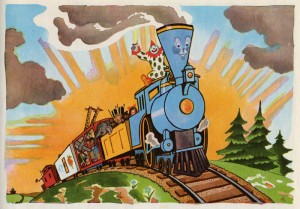“Ever tried. Ever failed. No matter. Try Again. Fail again. Fail better.”
—Samuel Beckett (Worstward Ho)
The above quote from Beckett’s penultimate novella has become a popular battle cry of enlightened arts leaders. Many of us have developed and embraced a new way of going about things. Rather than let popular programs keep working not quite as well as they used to, we now practice arts leadership within a variety of effective innovation frameworks. We test, we prototype, we experiment, we ask, “what might it mean to do the opposite?”—and we go on assuming that many of these experiments might very well fail but we’ll learn valuable things nonetheless, and better strive toward our missions through this learning. Through “failing better” we’ve learned to think like venture capitalists, and many of us have become very good at this. We’ve even come to believe that this is how to approach “failure.” However, within this framework, there is no failure. Even “unsuccessful” experiments yield, at the very least, valuable learning moments with which we can eventually get it right. Those who have welcomed prototyping frameworks into our daily practice have come to understand “failure” as a generative force. This is good.
But is this really failure?
How do we function in contexts where the failure isn’t ours? How do we keep going when the very structures we rely upon fail us? What do we do when the systems put in place to allow us to serve our missions have become so onerous to participate in that they seem increasingly like tests from the gods at best, or just plain old punishments? How do we stay strong when it takes twice as much effort to raise half as much money? How do we keep going when we know that what we’re doing serves our communities better than ever, yet it’s harder and harder to get support?
Here’s a starter list:
- If you’re not excited by it, stop doing it. This goes for programs your organizations does or produces, and it goes for you in your job, too.
- Ask: “Why are we doing this?” “Who is it for?” about everything your organization does—if you can’t answer easily, stop doing it or change it so it does.
- Don’t assume that growth is the answer. Sometimes, the more narrowly you focus, the more people you will reach.
- Practice accomplishing more by doing less. Put your communication devices away in the evening, even whole days on the weekend if you can. Don’t look at them first thing in the morning. Take care of yourself, really. Read, cook, hike, volunteer at another organization, whatever it takes.
- F. Skinner wrote, “If you’re old, don’t try to change yourself, change your environment.” This could mean interrogating your organizational mission toward re-inventing how your organization accomplishes its goals (see #1 above).


Leave a Reply